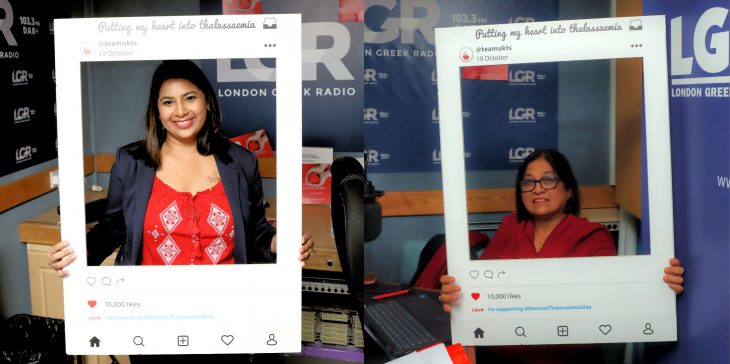
NHS rolls out world-first gene therapy for thalassaemia patients
Beta thalassaemia predominantly affects individuals of Cypriot, Greek, Italian, South Asian, Southeast Asian, and Middle Eastern descent.
Hundreds of patients in England with a life-limiting blood disorder are to benefit from a world-first gene-editing therapy. People with transfusion-dependent beta thalassaemia, or TDT, rely on regular lifelong blood transfusions to survive. But the new treatment offers them a life free from that and has been recommended for use on England’s NHS.
Roanna Maharaj was just a baby when she was diagnosed with thalassaemia, a life-limiting inherited condition that prevents the body carrying oxygen in red blood cells. For 35 years, she’s been having life-saving blood transfusions every few weeks. But the approval of new gene-editing therapy, CASgevy, for use by NHS England could change everything.
“Right now, the quality of life and the life expectancy in the UK for patients like myself are not that great compared to the general population, so you’re looking at 30s, 40s. And now to see the younger generation probably won’t have to go through the burden that I did and the battles I had and might have a normal life early on is the best news we could ever get in the world.”
Roanna is one of 460 people in England who could benefit from the treatment.
Stem cells are extracted from the patient’s bone marrow, the faulty gene is then modified using CRISPR-Cas9 technology in the lab, and the edited genres are infused back into the patient. The new gene-edited cells are then able to instruct the body to make hemoglobin, enabling the red blood cells to do their essential work, delivering oxygen around the body. The therapy usually costs £1.6 million pounds, but the NHS has negotiated a discount.
Romaine Maharaj, the executive director of the UK Thalassaemia Society, said: “With Nice’s approval of gene therapy for transfusion-dependent thalassaemia under the NHS managed access scheme, we stand on the brink of a revolutionary breakthrough.
“This transformative treatment offers patients a life-changing opportunity, enabling them to repair their own cells and embrace a future free from the challenges of their condition.
“It is a beacon of hope that underscores the power of innovation in medicine, paving the way for curative options that can truly enhance the quality of life for everyone affected.”
Amanda Pritchard, the chief executive of the NHS, said: “This is a historic moment for people living with beta thalassaemia, with a potential cure for those facing this debilitating disorder now available on the NHS. Ordinarily, patients experience painful side effects and undergo regular transfusions, which severely impact their quality of life, but this therapy offers people a life free from that, as well as the hope of living longer, which is truly amazing news.”
Tune into talking All Things Thalassaemia every third Thursday of the month, on LGR at 7pm. The talk show to raise awareness about thalassaemia, our wholly engaging format, with top tips and advice, for our listeners.
LGR 103.3 FM
DAB+ Digital in London & Birmingham
On-line at lgr.co.uk
Smart Speaker “Play London Greek Radio”
Article written by London Greek Radio


